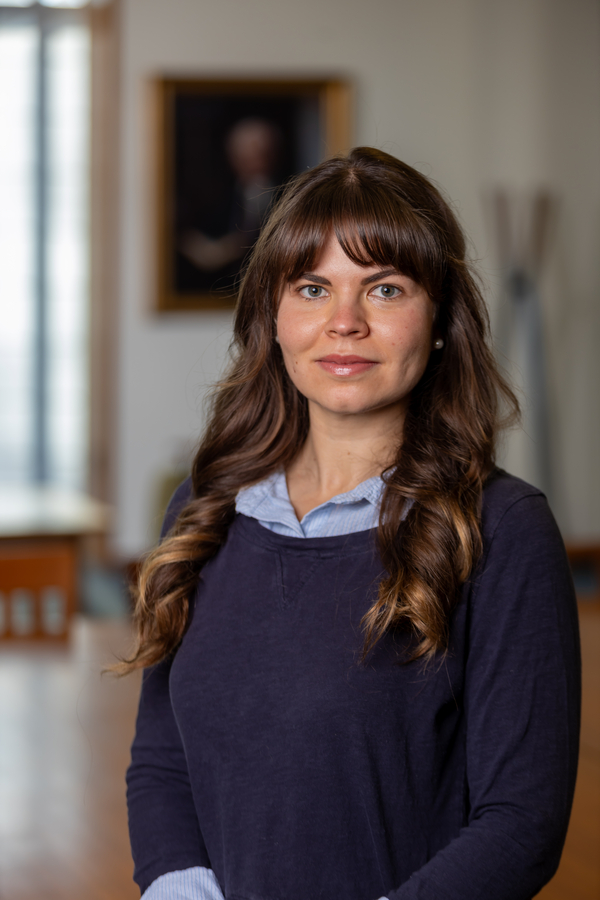Master of Divinity and Master of Arts in Christian Education and Formation Dual Degree
Unite the training of a traditional Master of Divinity program with additional preparation in Christian education and formation. Through a streamlined and integrated format, the Master of Divinity (MDiv) and Master of Arts in Christian Education and Formation (MACEF) dual degree program gives you the opportunity to focus on teaching, education, and Christian formation while simultaneously preparing to lead a congregation, pursue an advanced degree, or engage in ministries around the world.
Request Information
Is the MDiv/MACEF Program for Me?
Do you:
- Want to pursue a vocation in both education and ministry?
- Desire to deepen your knowledge of educational theory and praxis?
- Want to complete the standard seminary degree for ordination requirements?
Our unique MDiv/MACEF dual degree program combines wide-ranging study of theological disciplines with practical training for a leadership role in Christian education formation or ministry.
What You’ll Study
The dual-degree program integrates theological scholarship with advanced training in teaching and leadership skills. Take courses in everything from Biblical studies and theological imagination to intercultural communication and preaching, teaching, and applied exegesis.
Along the way, build theoretical frameworks for the ministry of Christian education, learn to integrate diverse approaches to theology with the practices of ministry and Christian life, and deepen the spiritual foundations and disciplines that support a lifetime of learning and service.
What You’ll Do
Beyond the classroom, engage in experience-based learning that prepares you to lead creatively, imaginatively, and wisely in an ever-changing world.
- Field education experiences immerse you in opportunities to lead worship, provide pastoral care, train volunteers, teach, or craft liturgy. Engage in at least two field education placements.
- The Alternative Context Requirement seeks to provide ministry experience, skills, and competence in cross-cultural contexts. You can meet this requirement through a travel course or through a field education placement in a location significantly different from your own.
- Second-Year Discernment gives you the opportunity to reflect on your vocational path and engage in conversation with members of the Seminary community.
MDiv/MACEF Program Details
As part of your MDiv studies, you may focus your coursework on a subject area of particular interest. From race and gender to environmental stewardship and justice, our concentrations organize your learning journey and provide space for fellowship with faculty and students who share your interests and concerns.
The following concentrations are available:
- Black Church Studies
- Christian-Jewish Studies
- Lutheran Studies
- Public Theology
- Reformed Theology
- Theology, Ecology, and Faith Formation
- Theology, Women, and Gender
The dual MDiv/MACEF requires the successful completion of 103 credits drawn from all four academic departments of the Seminary. The curriculum includes seven components:
Foundation Courses (20 credits)
Departmental Introductions or Foundations in the following areas (18 credits)
- Bible: OT 2102 – Orientation to Old Testament and Exegesis (3 credits), NT 2102 – Orientation to New Testament and Exegesis (3 credits)
- History: WCCH 2102 – World Christian History I (3 credits), WCCH 2103 – World Christian History II (3 credits)
- Theology: TH 2102 – Doing Christian Theology (3 credits)
- Practical Theology – A course in Education and Formation (EF) in first year (3 credits)
- SC 2101 and SC 2012 – Speech Communication in Ministry I and II (2 credits)
Additional Department Courses (18 credits)
- One “close reading of the text” course in Biblical Studies (OT, NT) (3 credits)
- One elective course in History and Ecumenics (CH, EC, HR, WC) (3 credits)
- A “doctrine” course in Theology (3 credits) and an “ethics/constructive theology course” (3 credits)
- PR 2100 – Introduction to Preaching (3 credits)
- One elective Practical Theology course in Pastoral Care (PC) (3 credits)
Core Commitment Courses and Other Requirements (17 credits)
- A Life Together course (3 credits)
- A Theological Imagination course (3 credits)
- A course designated as fulfilling the Christian Leadership: Church, Religion, and Society core commitment (3 credits)
- A course designated as fulfilling the Renewal of Creation, Self, and Communities core commitment (3 credits)
- A course designated as fulfilling the Spiritual Practices of the Faith core commitment (3 credits)
- ID 1102 – Intercultural Communication (1 credit)
- ID 2105 – Digital Media Studies in Ministry (1 credit)
Education and Formation Courses (16 credits)
One course from each of the following categories:
- Theological/Theoretical Foundations (3 credits)
- Human Sciences (3 credits)
- Contextual Issues in Ministry (3 credits)
- Skills and Practices (3 credits)
- Education and Formation (EF) Elective (3 credits)
Reflective Practicum (1 credit)
Field Education (4.5 credits) and Second-Year Discernment Process (.5 credit)
General Elective Courses (27+ credits)
The number of general elective credits may be higher if you take courses that count for more than one requirement. In some cases, a course can fulfill two distribution requirements.
Alternative Context Requirement
Sample Courses
- ET 3316CR – Ethics and the Problem of Evil
- TH 3337 – Political Theologies – Beyond Liberation?
- TH 3416 – Divine Omniscience and Human Freedom
- TH 3451 – Modern Christology
- TH 3453 – The Idea of Pentecost
To qualify for admission, you must have an undergraduate degree (typically a BA or BS) from a school accredited by one of the accrediting agencies recognized by our faculty. Please submit the following:
- A completed admissions application
- Unofficial transcripts from all post-secondary institutions previously attended
- Three letters of recommendation: one pastoral endorsement, one academic, and one additional
- Application fee of $50
Interviews are not required but are strongly encouraged as they play a significant role in scholarship consideration. For U.S. citizens and permanent residents, interviews are available once the application is submitted. International student interviews are by invitation only. Instructions and a link to schedule an interview will be provided to eligible candidates after application submission.
Outcomes with an MDiv/MACEF Dual Degree
The MDiv/MACEF dual degree provides you with the flexibility to discern your calling within a wide range of possible careers. Courses in pastoral care and Christian leadership prepare you for a role in ministry, while education-focused courses provide the skills you need to serve in Christian formation and teaching.
In Their Own Words
Next Steps
Prepare for a role in ministry or Christian education and formation. Learn more about the MDiv/MACEF, schedule a visit, or apply today.








